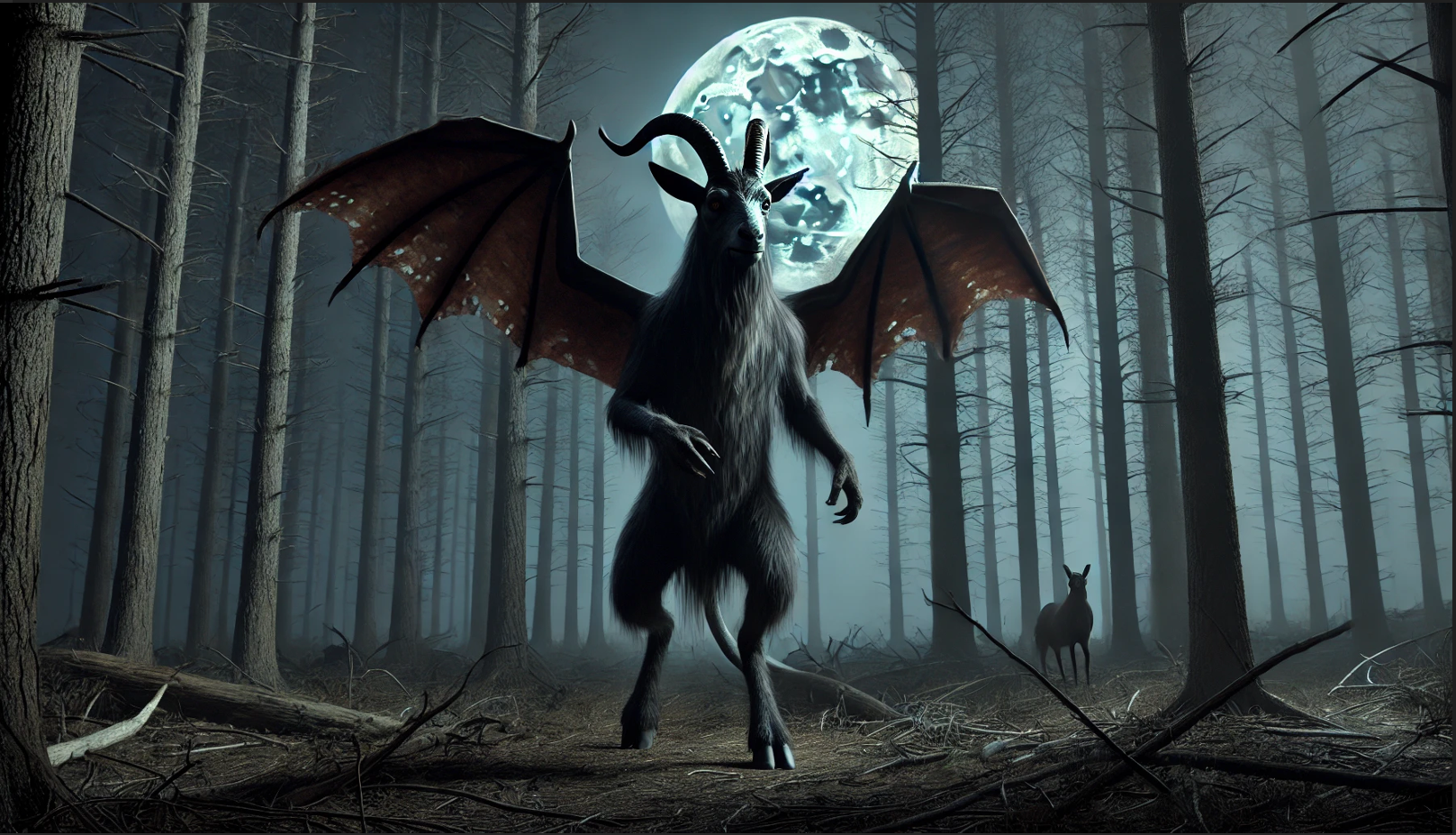Is The New Jersey Devil Real Or Myth?
Join us on a chilling journey through the silent night whispers of the New Jersey Devil. A tale of mystery and fear.
Aug 27, 202434K Shares454.1K Views

In the shadowy depths of New Jersey's Pine Barrens lies a tale as chilling as the wind that whistles through its trees. The New Jersey Devil, a creature of fear and fascination, has haunted this region for over two centuries. This article dives deep into the origins, sightings, and cultural impact of the New Jersey Devil, providing a comprehensive and engaging exploration of this legendary beast.
The Origins Of The New Jersey Devil
The Leeds Family And The Birth Of A Legend
The legend begins with Mother Leeds, an 18th-century woman who, overwhelmed by the burden of a thirteenth child, cursed the newborn, declaring, "Let this one be a devil!" According to the tale, the baby transformed into a monstrous creature with hooves, a goat's head, bat wings, and a forked tail. Screeching, it flew up the chimney and vanished into the Pine Barrens, thus beginning the legend of the New Jersey Devil.
Historical Context And Folklore
The Leeds family were early settlers and prominent figures in the area. Daniel Leeds, the family patriarch, was a Quaker turned Anglican who published almanacs that angered the local Quaker community. This historical tension, combined with local folklore, likely fueled the supernatural narrative. The story of the Leeds Devil, as it was initially known, blends reality with myth, creating a lasting legend.
Sightings And Encounters
Early Reports
One of the earliest documented encounters occurred in 1820 when Joseph Bonaparte, elder brother of Napoleon Bonaparte, claimed to have seen the creature while hunting in Bordentown, New Jersey. This sighting lent credibility to the legend, as Bonaparte was a respected figure.
The Phenomenal Week Of 1909
In January 1909, the legend reached a fever pitch. For a week, newspapers were filled with reports of strange footprints, eerie sounds, and terrifying encounters across the Delaware Valley. Schools closed, and factories shut down as people feared to leave their homes. This "Phenomenal Week" solidified the New Jersey Devil's place in popular culture.
Modern Sightings
Sightings continue into the 21st century. Hunters, hikers, and residents of the Pine Barrens occasionally claim to see the creature or hear its chilling cries. While skeptics attribute these sightings to misidentifications or hoaxes, the legend endures, captivating the imaginations of locals and tourists alike.
The New Jersey Devil In Popular Culture
Media And Literature
The New Jersey Devil has inspired books, movies, and television shows. James F. McCloy and Ray Miller Jr.'s book, "The Jersey Devil," compiles sightings and theories. TV shows like "The X-Files" and "Supernatural," and movies such as "The Last Broadcast" and "13th Child" feature the creature, embedding it further into American pop culture.
Sports And Mascots
The NHL's New Jersey Devils, a professional ice hockey team, adopted the creature as their mascot. The team's playful representation, "NJ Devil," brings the legend into the modern era, blending folklore with contemporary sports culture.
Tourism And Local Lore
The Pine Barrens and surrounding areas capitalize on the legend, attracting tourists and paranormal enthusiasts. Guided tours, museums, and festivals dedicated to the New Jersey Devil offer unique perspectives on the legend. The creature has become a symbol of local pride and mystery, drawing visitors eager to learn more about the enigmatic beast.
Analyzing The Legend: Fact Or Fiction?
Skeptical Explanations
Skeptics suggest various explanations for the legend, from misidentified animals to elaborate hoaxes. Some believe the creature is a sandhill crane, a large bird native to the area that fits some descriptions of the devil. Others argue that the legend is a product of mass hysteria, fueled by sensationalist media and local folklore.
Cryptozoological Perspective
Cryptozoologists, who study hidden or unknown animals, consider the New Jersey Devil a legitimate subject of investigation. They analyze eyewitness accounts, physical evidence, and historical records in an attempt to prove the creature's existence. While no definitive proof has been found, the New Jersey Devil remains a fascinating case study.
Cultural Impact
Regardless of its existence, the New Jersey Devil has profoundly impacted the culture and identity of southern New Jersey. The legend has shaped local folklore, influenced popular culture, and contributed to the region's mystique. It serves as a reminder of the power of storytelling and the enduring allure of the unknown.
Unraveling The Mystery: Frequently Asked Questions
What Is The Origin Of The New Jersey Devil Legend?
The legend originates from the story of Mother Leeds and her cursed thirteenth child, who transformed into the New Jersey Devil. This tale has roots in local folklore and historical events involving the Leeds family.
Have There Been Any Credible Sightings Of The New Jersey Devil?
While many sightings have been reported, the credibility varies. Notable encounters include Joseph Bonaparte's sighting in 1820 and the widespread reports during the "Phenomenal Week" of 1909.
What Are Some Skeptical Explanations For The New Jersey Devil?
Skeptics suggest the legend could be attributed to misidentified animals, such as sandhill cranes, or mass hysteria fueled by sensationalist media and local folklore.
How Has The New Jersey Devil Influenced Popular Culture?
The New Jersey Devil has inspired books, movies, TV shows, and even a professional hockey team. It is a prominent figure in American folklore and popular culture.
Is There Any Scientific Evidence Supporting The Existence Of The New Jersey Devil?
To date, no definitive scientific evidence has been found to prove the existence of the New Jersey Devil. The legend remains a subject of speculation and investigation.
Conclusion
The New Jersey Devil, whether a mythical creature or a fascinating piece of folklore, continues to captivate those who hear its story. The Pine Barrens' dense forests and mysterious swamps provide the perfect backdrop for a legend that has endured for centuries. As long as there are those willing to believe, the New Jersey Devil will remain an enigmatic and captivating part of American folklore.
Latest Articles
Popular Articles